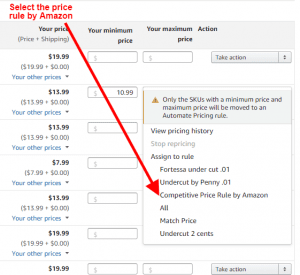Technology Integration has fundamentally reshaped the e-commerce landscape, creating new opportunities and complexities for businesses of all sizes.
For Amazon FBA (Fulfillment by Amazon) and FBM (Fulfillment by Merchant) sellers, properly adapting in this digital evolution is crucial. As technology continues to advance rapidly, keeping up with innovations becomes essential for maintaining competitiveness and driving growth.
Adjusting to these changes ensures that sellers can utilize new tools and strategies effectively, improving their operations and achieving long-term success.
Technology Integration Challenges for FBA Sellers
The FBA model, while advantageous, presents specific technological challenges. Sellers face the task of managing a diverse set of tools and platforms, which requires careful integration.
Additionally, maintaining data security and adhering to compliance standards are critical. Knowing what to do with these complexities is important for optimizing operations and sustaining competitive advantage.
Key Areas of Focus for FBA Sellers
FBA sellers should focus on these critical areas to help optimize their operations and stay competitive on Amazon:
- Emerging Tools and Platforms: Stay updated with the latest software and applications that can further boost efficiency and drive sales growth.
- AI and Machine Learning Innovations: Utilize artificial intelligence and machine learning tools for predictive analytics, personalized customer experiences, and automated decision-making.
- Automation Solutions: Implement automation to streamline routine tasks such as inventory management, order processing, and customer service.
- API Changes and Updates: Understanding and adapting to Amazon’s frequent API changes to maintain seamless integration and uninterrupted operations.
- Data Security: Protecting sensitive customer and business information from breaches and unauthorized access.

Challenges for FBA Sellers
With how complex Amazon is, it’s no wonder there are a lot of challenges FBA sellers encounter with technology integration. Addressing these challenges is crucial to maintaining operational efficiency and competitiveness:
- Keeping Up with Updates: Frequent changes to Amazon’s policies, fees, and algorithms can be overwhelming, requiring constant monitoring and timely adjustments.
- Adapting to New Technologies: Implementing and effectively utilizing emerging tools, including AI and automation, can be time-consuming and resource-intensive.
- Maintaining Data Security: Ensuring the protection of sensitive customer and business information is critical, but achieving and sustaining robust security measures can be complex.
Solutions for FBA Sellers
These strategic approaches will help FBA sellers overcome technological challenges:
- Partner with Integration Specialists: Partnering with experts who specialize in Amazon integrations can streamline processes and reduce errors, particularly when integrating AI and automation tools.
- Adopt Flexible Technology: Choosing adaptable and scalable solutions enables businesses to adjust to changing marketplace dynamics and leverage innovations in artificial intelligence and machine learning.
- Enhance Security Measures: Invest in advanced security systems and practices to safeguard sensitive data effectively.
- Implement Automation: Use automation to reduce manual tasks and improve efficiency across various aspects of the business.
Example Scenario & Solution
Problem:
An FBA seller faces major inventory discrepancies stemming from difficulties in integrating their ERP system with Amazon’s platform. This misalignment leads to inaccurate inventory levels and fulfillment errors.
Solution:
To resolve this issue, the seller should implement a specialized integration solution designed to bridge their ERP system with Amazon’s platform. Working closely with an integration expert can further help them in this process, ensuring a seamless data flow.
This approach helps maintain accurate inventory records, minimizes fulfillment errors, and improves overall operational efficiency. Additionally, adopting flexible technology solutions and conducting regular system audits can support long-term success and adaptability to future changes.
Technology Integration Challenges for FBM Sellers
While FBM sellers have greater control over their operations compared to FBA sellers, they also face distinct technological challenges related to tech integration.
Unlike FBA sellers who rely on Amazon’s infrastructure for fulfillment, FBM sellers need to integrate various systems and platforms. This includes managing their own inventory systems, shipping solutions, and customer relationship management tools.
Key Areas of Focus for FBM Sellers
Focusing on these key areas helps FBM sellers streamline operations, boost efficiency, and improve customer satisfaction:
- Integration with E-commerce Platforms: Ensuring seamless synchronization between their online store and other sales channels.
- Artificial Intelligence and Machine Learning Tools: Use AI for predictive analytics and machine learning to optimize pricing strategies and inventory management.
- Automation: Implement automation solutions for routine tasks, such as order processing and customer support.
- Shipping and Logistics Innovations: Implementing efficient shipping and fulfillment processes to meet customer expectations.
- Customer Relationship Management (CRM): Building strong customer relationships through effective communication and personalized experiences.
Challenges for FBM Sellers
FBM sellers face these technological issues that can impact their operational efficiency preventing them from staying competitive in the Amazon marketplace:
- Technology Adoption: Introducing new AI, machine learning, and automation systems or software can be time-consuming and may cause workflow disruption.
- System Integration: Combining multiple platforms and applications, including advanced technologies, often involves complex and error-prone processes.
- Staying Informed: Keeping up with the latest technology trends and best practices requires constant effort and resources.
Solutions for FBM Sellers
FBM sellers should implement the following strategies to address these challenges and avoid damages immediately:
- Adopt Modular Technologies: Use flexible and scalable software solutions that are easily integrated and expanded as needed, including AI and automation tools.
- Utilize Integration Tools: Implement specialized tools designed to streamline seamless data exchange between various systems, reducing complexity and errors.
- Stay Engaged with Technology Trends: Regularly research and stay informed about emerging technologies and best practices to identify opportunities for improvement.
Example Scenario & Solution
Problem:
An FBM seller faces difficulties managing inventory across multiple sales channels, resulting in frequent stockouts and overstocks.
Solution:
To address this issue, the seller should implement a modular inventory management system that integrates seamlessly with all sales channels. Using AI-driven integration tools, the system can provide real-time visibility into stock levels, helping to prevent stockouts and optimize order fulfillment.
Additionally, staying engaged with technology trends will enable the seller to leverage new advancements and continuously improve inventory management practices, enhancing overall efficiency and accuracy.
Tools for Technology Integration and Innovation
To stay ahead in the competitive Amazon marketplace, sellers must effectively manage technology integration and keep pace with innovations. Here are key tools that can aid in these areas:
1. Market Research and Product Insights
- Jungle Scout: This tool provides comprehensive market trends, product research, and competitive analysis, helping sellers identify new opportunities and adapt to market changes.
- Helium 10: Offers a range of tools for product research, keyword optimization, and market tracking, ensuring sellers can stay informed about emerging trends and technologies.
- ZonGuru: Includes features for managing product listings and tracking performance, allowing sellers to integrate new technologies and enhance their operational efficiency.
2. Performance Tracking and Analytics
- Seller Labs: Provides tools for PPC management, listing optimization, and customer engagement, helping sellers stay updated with innovations and optimize their campaigns.
- Sellerise: Delivers in-depth analytics for market trends, SEO, and performance metrics, enabling sellers to monitor technological impacts and adapt strategies accordingly.
Are you interested in knowing more about Sellerise? Check out our Amazon agency’s video review to learn more:
Key Features:
- Inventory Management: Track stock levels, identify shortages, and optimize inventory placement.
- Financial Insights: Analyze sales, profits, and expenses with detailed breakdowns and ABC analysis.
- Advertising Optimization: Track ad performance, identify top-performing products, and allocate budget effectively.
- Review Analysis: Monitor review trends, identify common themes, and calculate the impact of new reviews on overall rating.
3. AI and Automation Tools
- Data Dive: Uses machine learning to provide detailed insights and recommendations for Amazon listings.
- Algopix: AI-driven market research tool that provides in-depth product and market analysis.
4. Multi-Channel and Integration Management
- ChannelAdvisor: Facilitates integration across various e-commerce platforms and marketplaces, streamlining operations and enabling seamless technology adoption.
- Integration Platforms (e.g., Zapier, Integromat): Automate workflows and integrate different tools and systems, reducing complexity and enhancing operational efficiency.
5. Amazon Platform Tools
- Amazon Seller Central Tools: Utilize Amazon’s own tools for performance insights, inventory management, and advertising, ensuring alignment with platform updates and innovations.
All these essential tools support Amazon sellers in managing integrations and staying competitive by keeping up with the latest advancements and best practices.
Staying Updated with Amazon Innovations: A Competitive Advantage
Technology integration is important for both FBA and FBM sellers to thrive in the competitive Amazon marketplace.
For FBA sellers, focusing on emerging tools, API changes, and data security is essential to streamline operations. FBM sellers, on the other hand, must address challenges related to integrating diverse systems, managing shipping logistics, and enhancing customer relationships.
By implementing specialized solutions and staying updated with technological advancements, sellers can overcome these hurdles, optimize their processes, and maintain a competitive edge.
Do you need help with your Amazon business? Contact our Amazon agency and get personalized advice today!






